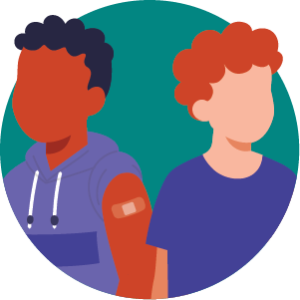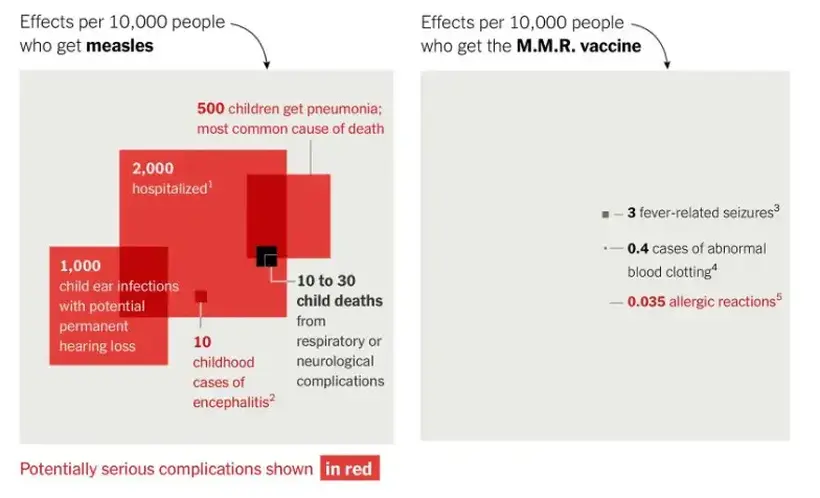
Why Do We Care If Your Child Is Vaccinated?
You might wonder, “Why does it matter if my kids aren’t vaccinated, as long as yours are?” It’s a good question. It’s important to ask questions about your child’s health—and to ask trusted sources. Pediatricians are trained to give safe medical advice and are happy to answer your questions. They can also help you understand what’s best for your child’s health. So, why do we care if your child gets vaccinated?
First, we care about your child!
Diseases like measles are not harmless. They can cause pneumonia, brain swelling and inflammation, and even death. The measles vaccine (MMR) has been tested for years. Yes, like anything, it has small risks—but the risk of not vaccinating is far worse. It’s like a seatbelt. You wear it because it saves lives, even if it might cause a bruise in a crash. Measles is like that crash. You don’t want to wait until it’s too late.
Here’s a powerful comparison:

Graphic from New York Times
Original article with graphic: Opinion | You Are Unvaccinated and Got Sick. These Are Your Odds. - The New York Times
Graphic can also be found in the article here: A child is dead from measles. - by Katelyn Jetelina
Second, your decision effects others—more than you may think.
Measles spreads fast—faster than you may think. A child with measles can spread it before noticing symptoms. That means they could cough at the store and pass it to a newborn. They could go to school and infect a classmate who’s fighting cancer. Even healthy kids can end up in the hospital.
Every child who is vaccinated helps stop the disease from getting to the people who can’t fight it. Our choice protects them. This illustration gives an idea how vaccination rates can affect certain diseases:

Image from PBS
Finally, we want to stop measles for good.
Measles was declared eliminated in the U.S. in 2000. That meant it wasn’t spreading here anymore. But now, with fewer kids getting vaccinated, we’ve seen cases come back. If we all work together, we can stop it again—and maybe even get rid of it forever, like smallpox. That means saving time, money, and most importantly, lives.
Talk to your pediatrician. Ask questions. But please—don’t wait.
For more information about measles, visit SRHD’s Measles Health Topic Page.
